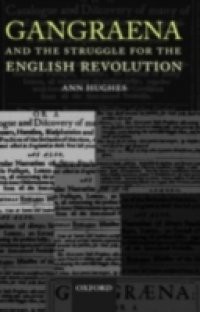This is the first comprehensive study of Gangraena, an intemperate anti-sectarian polemic written by a London Presbyterian Thomas Edwards and published in three parts in 1646. These books, which bitterly opposed any moves to religious toleration, were the most notorious and widely debated texts in a Revolution in which print was crucial to political moblization. They have been equally important to later scholars who have continued the lively debate over thevalue of Gangraena as a source for the ideas and movements its author condemned. This study includes a thorough assessment of the usefulness of Edwards's work as a historical source, but goes beyond this to provide a wide-ranging discussion of the importance of Gangraena in its own right as a lively work ofpropaganda, crucial to Presbyterian campaigning in the mid-1640s. Contemporary and later readings of this complex text are traced through a variety of methods, literary and historical, with discussions of printed responses, annotations and citation. Hughes's work thus provides a vivid and convincing picture of revolutionary London and a reappraisal of the nature of 1640s Presbyterianism, too often dismissed as conservative. Drawing on the newer histories of the book and of reading, Hughes explores the influence of Edwards's distasteful but compellingbook.

